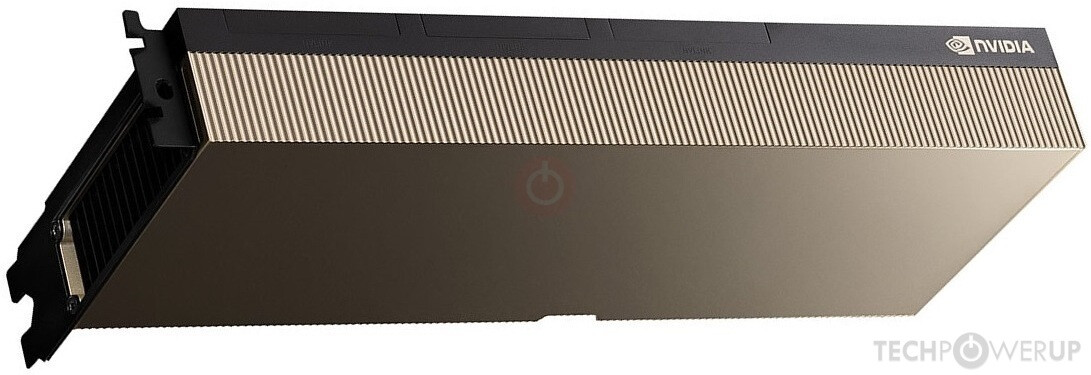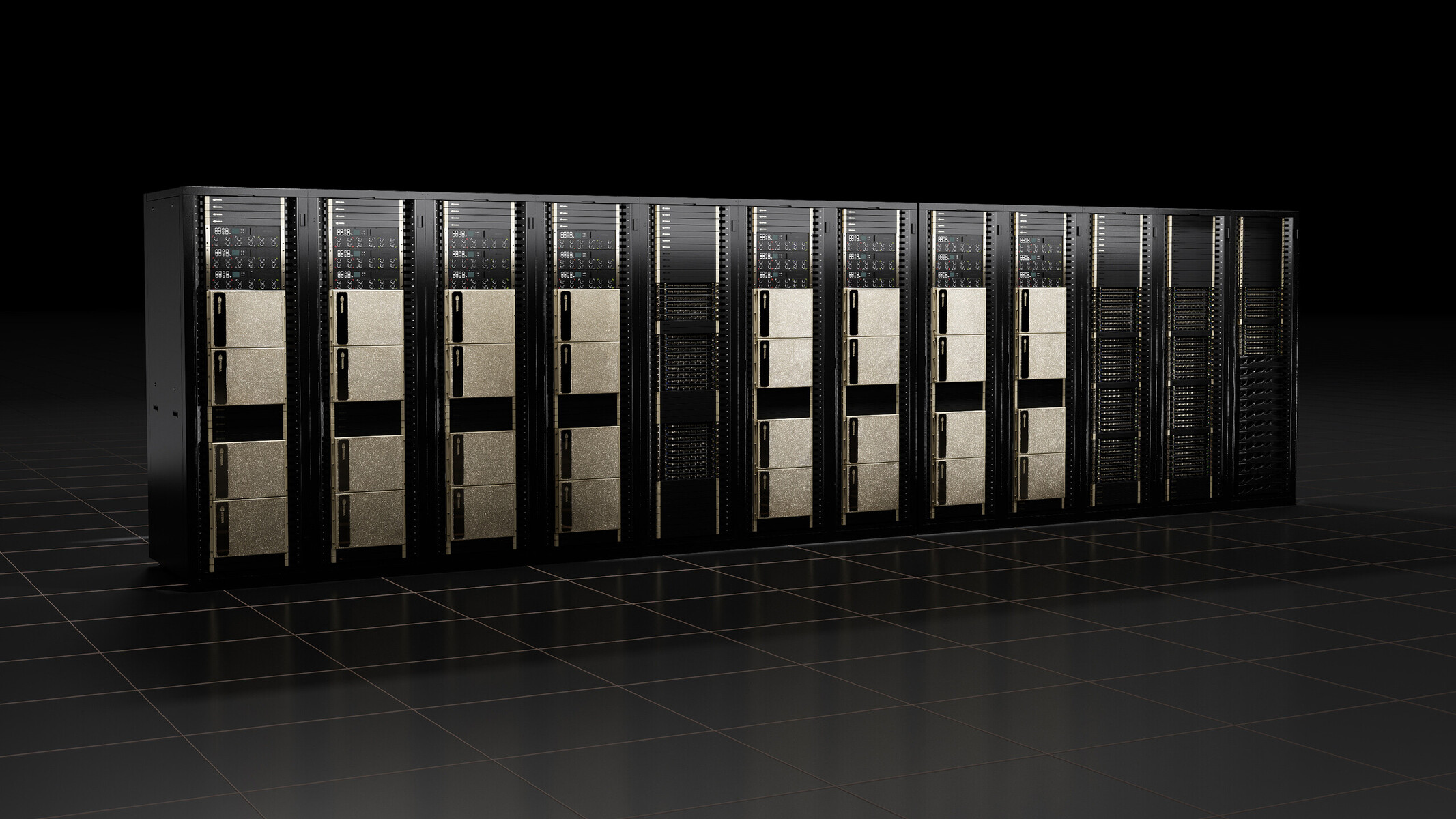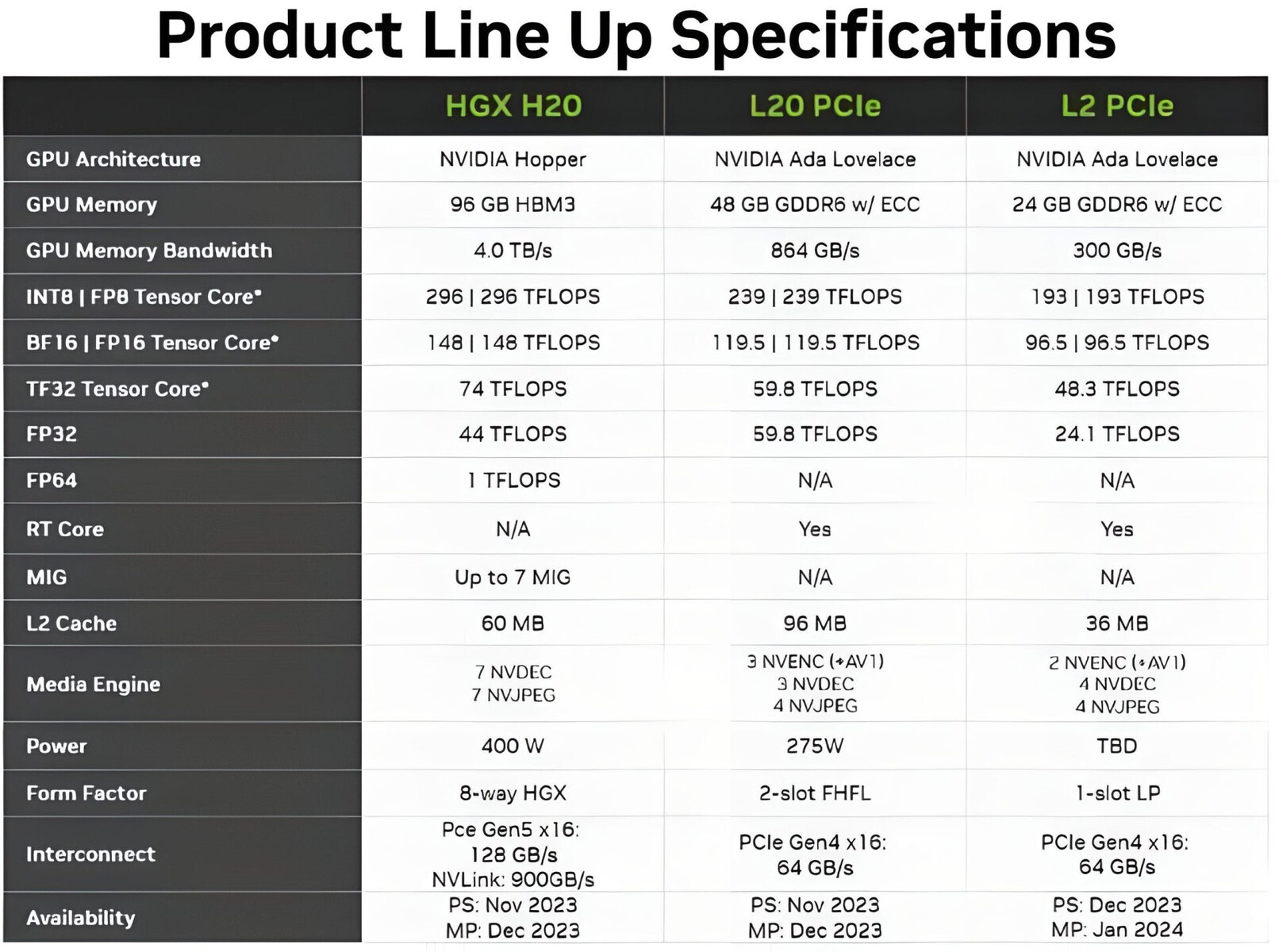NVIDIA's H800 AI GPU was released last year to comply with US export regulations. However, the US Government determined that the "Hopper" part of the GPU was too powerful for NVIDIA's Chinese enterprise customers. As a result, sales of the H800 and the older A800 "Ampere" GPU were banned in China. NVIDIA's engineering team went back to the drawing board and developed a new range of compliant products. According to an exclusive Reuters report, NVIDIA is now accepting pre-orders for a refreshed "Hopper" GPU specifically designed for China, called "HGX H20." The new model, as well as the L20 PCIe and L2 PCIe GPUs based on Ada Lovelace, have not been updated on NVIDIA's website. Insiders within the distribution network claim that Huawei's competing Ascend 910B is slightly more powerful in certain areas compared to the H20.
The leakers suggest that H20 models will be sold by NVIDIA's distributors in China for a price range of $12,000 to $15,000. Huawei's locally developed Ascend 910B is priced at 120,000 RMB (~$16,900). One source mentioned that some distributors are advertising the NVIDIA H20 chips with a markup, selling them for around 110,000 yuan ($15,320). NVIDIA has not commented on this situation. Another insider revealed that distributors are offering pre-configured H20 servers with eight AI chips for 1.4 million yuan, while servers with eight H800 chips were sold for around 2 million yuan when they were launched a year ago. Small batches of H20 products are expected to be delivered to important clients in the first quarter of 2024, followed by a wider release in the second quarter. Mass production is anticipated to begin in the spring.
Last year, NVIDIA held a 90% market share in the AI GPU market. However, several domestic rivals have emerged with competing solutions that are not subject to international trade restrictions. According to an anonymous technical expert interviewed by Reuters, Huawei's 910B chip is considered the most competitive AI offering in China and has gained popularity due to concerns about restricted access to NVIDIA's products as a result of US sanctions. In terms of specifications, the H20 lags behind the 910B in FP32 performance, which measures the speed of common tasks and is rated at less than half of its rival's capability. However, the H20 has an advantage in interconnect speed, which measures the speed of data transfer between chips. This means that the H20 remains competitive with the 910B in applications that require linking a large number of chips together to function as a system.


